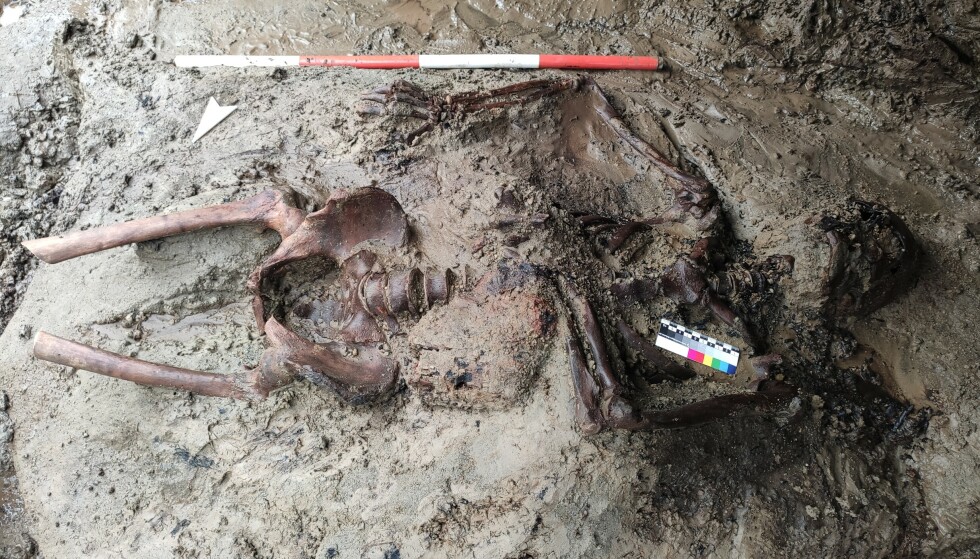Archaeologists have made a startling discovery in the ancient city of Herculaneum in Italy. The eruption of Vesuvius in August 79 may have buried the city in ash and rain, which turned into solid volcanic rock, according to Great Norwegian Encyclopedia.
Earlier this fall, it became known that archaeologists believe they have found the skeleton of a man in his forties and forties. Now they also discovered something the man must have carried by his side when he died.
Sympathy is the word for how I felt when I saw the find, says Francesco Serrano, director of the Herculaneum Archaeological Park, and notes that this may have been something personal that the victim “literally brought him close to.”
Cyrano says in statment.

Case: The skeleton was found with a shoulder bag of the type that archaeologists will examine closely. Photo: Archeologico Di Ercolano Park
Show more
shoulder back
The new discovery provides a glimpse into one of the most famous volcanic eruptions in history NBC News.
Italian news agency forget He writes that a kind of shoulder bag with a skeleton was found. It contained several different substances that would be examined in the laboratory. They also found a wooden chest that should be of use. In addition, a small bronze was observed through a small camera inserted into the bag.
Serrano describes the discovery as “a new piece of mosaic information that makes Herculaneum unique in the ancient world: a place that conveys snapshots of the past, even from the most unimaginable angles.”
The skeleton had several fractures that researchers believe sustained when it was dragged along with the explosion.
– In the crash, the victim met the same fate as 330 others found in previous years. A statement from the archaeological park said the high temperatures caused the tissues to evaporate instantly, and the skeleton got stuck in the mass of ash, gas and other debris.

Volcano eruption: Herculaneum was completely destroyed by the eruption of Vesuvius on August 24, 79, and perhaps this fall, archaeologists discovered the city’s first human skeleton in 25 years. Photo: Archeologico Di Ercolano Park
Show more
– open book
Culture Minister Dario Franceschini described the discovery earlier this fall as impressive forget.
Herculaneum never disappoints. Every time you touch a surface, you make incredible discoveries, says Jane Thompson, leader of the Herculaneum Conservation Project.
The skeleton was the first to be found about 25 years ago The New York Times.
We can learn a lot from the skeleton: its exact age, what jobs it held, whether it was sick, says Domenico Camardo, chief archaeologist at the restoration project.
Today it is possible to carry out analyzes that were not possible 20-30 years ago, points out Pier Paolo Petroni, an archaeologist at Federico II University of Naples.
– For example, we study the DNA of these people. We will tell their story. Herculaneum is an open book, he says, according to the New York Times.
Through studies of these victims and the effects, one can get an idea of what might happen in the event of a future outbreak, he says.
The volcano is still active, standing in an area of three million people, says Petron.

“Organizer. Social media geek. General communicator. Bacon scholar. Proud pop culture trailblazer.”

